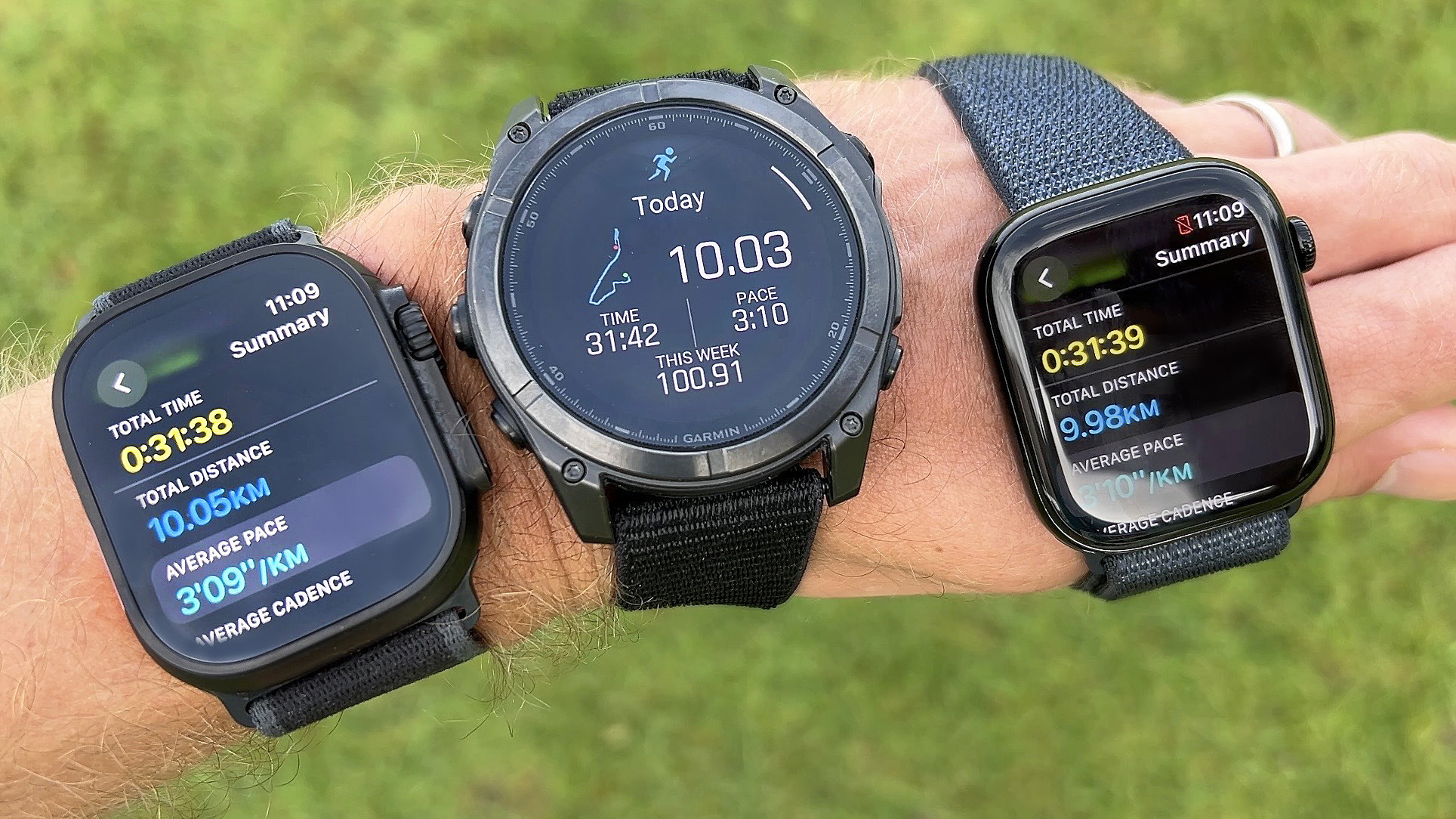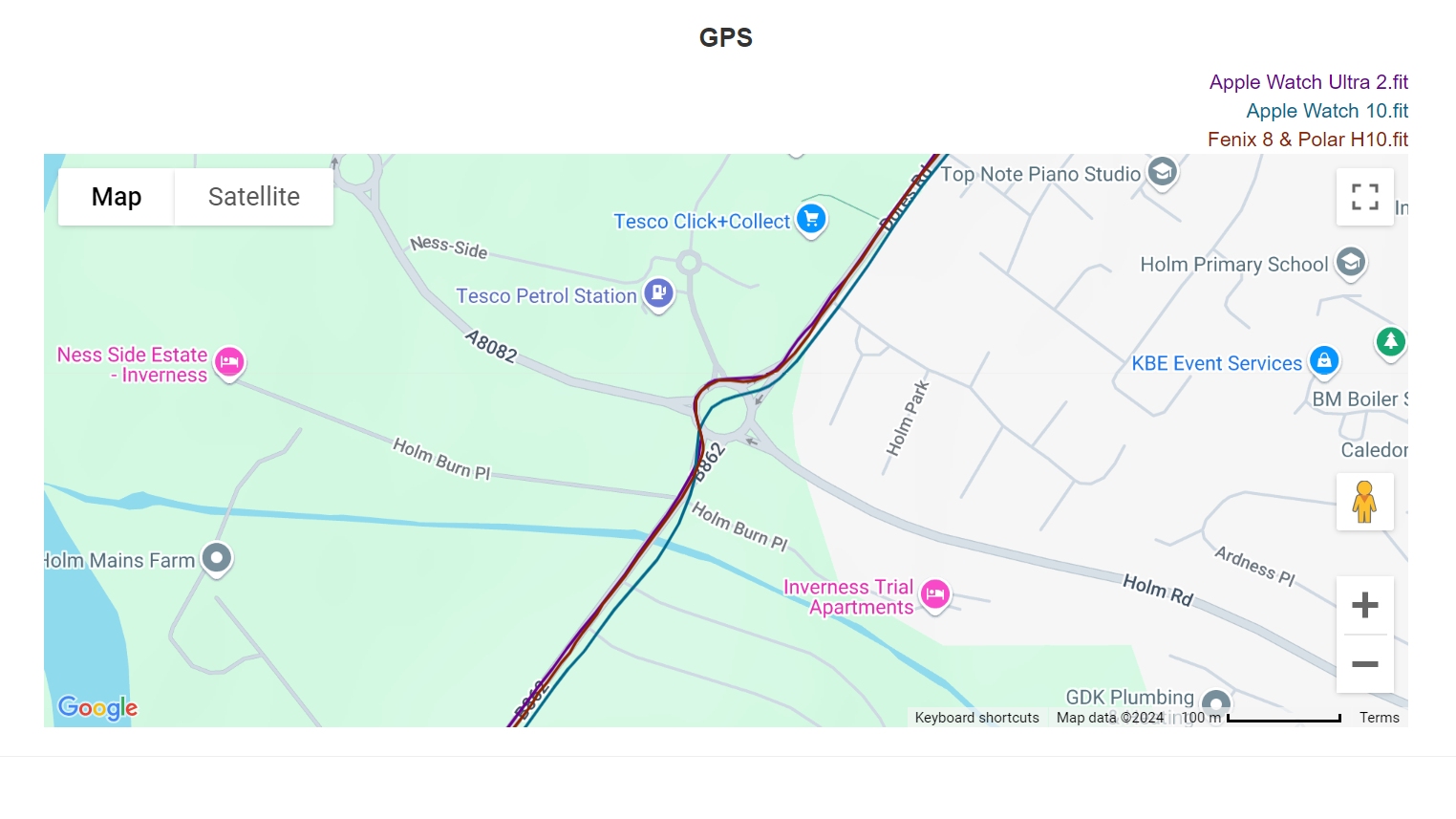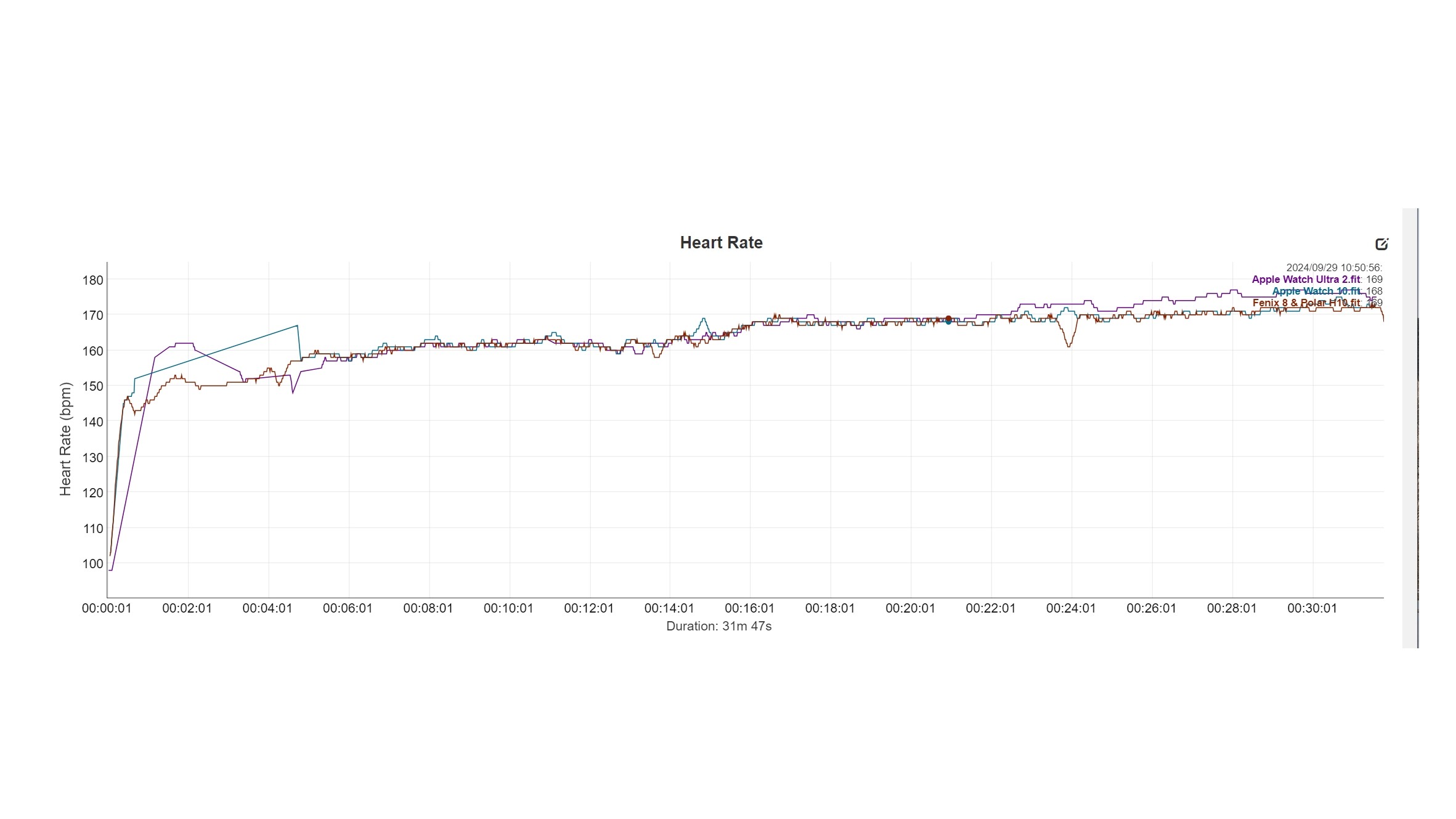
I have tested every generation of the Apple Watch and Apple Watch Ultra, and they have consistently been among the best smartwatches available for runners. I’ve run many events with older models of the Apple Watch, and I was keen to test the latest versions against each other with a race, so I wore the Apple Watch 10 and Apple Watch Ultra 2 for the River Ness 10K.
The race is part of the Loch Ness Marathon festival, a fantastic event in Inverness, Scotland, and the 10K has a lightning-fast route from the outskirts of the city down into the center of town, where an inflatable Loch Ness Monster is waiting to greet you at the finish line.
Along with the two Apple Watches, I also had the Garmin Fenix 8 with me, which was connected to a Polar H10 heart rate monitor to check the accuracy of the heart rate tracking on the Apple devices during the race. I ran the 10K in 31:33, my fastest time for the distance, here’s how the watches performed.
GPS accuracy

Both watches were close to bang on the 10K distance for the race, with the Apple Watch 10 coming in a little short, and the Apple Watch Ultra 2 a little long. It’s unlikely I ran exactly 10K as I will have taken wider turns on some corners than the measured course, so the Ultra 2 is likely to be spot on. Its GPS track looks excellent and closely in line with the Garmin Fenix 8.
The shorter distance on the Apple Watch 10 is probably caused by a couple of corners that it cut a little more than the Ultra, and it also had me going straight over a roundabout rather than curving round, again shaving off some distance.

Both watches were very good, though, and since the Apple Watch 10 doesn’t have the dual-band GPS tracking of the Apple Watch Ultra 2 you might expect it to be slightly less accurate. You also don’t have the precision start option on the Apple Watch 10, which you do have on the Ultra 2 and this allows you to confirm you have GPS lock-on before starting a workout.
Heart rate accuracy
Both watches score highly for heart rate accuracy as well, with their readings mostly being in line with the Polar H10 chest strap, and having similar average and max heart rate measurements. This was despite the fact it was a cold day, when I often find that optical sensors struggle to get a reliable heart rate reading at my wrist.

Both did struggle to get my heart rate locked on for the first few minutes of the race, but then read it reliably until near the end when the Ultra 2 showed a slightly high reading for a few minutes. Throughout the race I was able to check my heart rate on both watches and rely on the fact the reading was right, which can help with pacing yourself in longer events.
Pacing
While the overall distance and lap splits were accurate on both watches, I did have trouble using them for pacing each kilometer in the race. This is because the split pace stat in the native Workout app always seems to show a slower pace than is accurate for the first half of each split.
For example, my pace was quite even for most of the race, with each kilometer done at around 3:10/km pace, but early on in each split both watches would tell me I was running that kilometer at about 3:45/km pace, even if I hadn’t slowed down from the previous split so my pace should still be 3:10/km, as it was for split pace on the Garmin Fenix 8. The pace would then come down to the right split pace by the end of the kilometer, but it was hard to actually judge how fast I was going at times using the Apple watches.
Verdict
Both watches were accurate during the 10K race, with the Apple Watch Ultra 2 being a little better for GPS and the Apple Watch 10 slightly more reliable for heart rate in the later stages. Both had problems with pacing, and I’d solve that in the future by using a third-party app — YouRace and WorkOutDoors are both among the best Apple Watch apps for runners.







